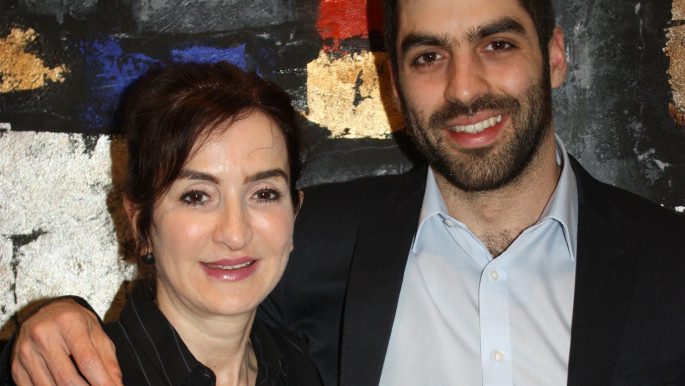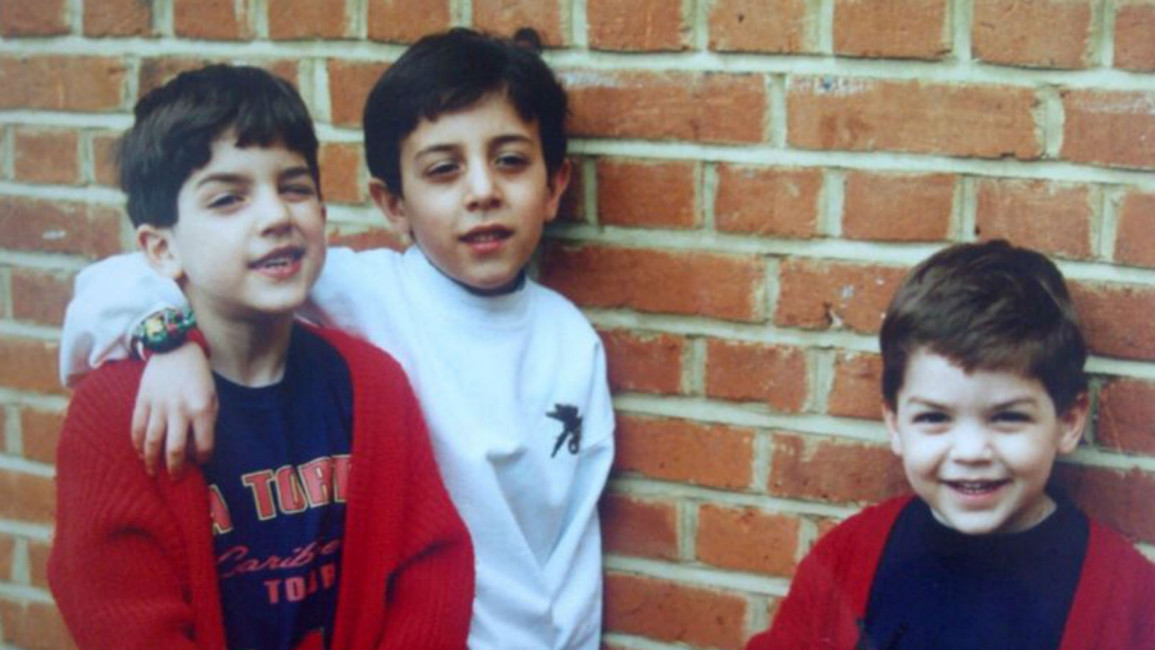
Use it or lose it: Teaching your children Arabic
Despite being raised by Iraqi parents who made a conscious effort to teach him and his siblings their native language, English vocabulary and slang always felt more suited to their everyday lives in Surrey, on the outskirts of London.
Besides, explains Mehdi, now a 27-year-old solicitor, Arabic marked the divide between the adult and the children's world.
"You don't want to speak in the language of the oppressor," he jokes. "You get told off in Arabic!"
Despite their children's occasional ambivalence, the seeds planted by Mehdi's parents eventually grew, and as adults all three junior Shakarchis have taken an active interest in Arabic and the Middle East, with Mehdi achieving fluency through an undergraduate degree at London's School of Oriental and African Studies.
But the complex experience of negotiating two languages and cultures behind one front door is one that will be familiar to many Arab families in the UK - and across the world.
Many parents, like Mehdi's mother Nadia, are keen for their offspring to inherit Arabic as a link to their heritage, culture and - for a growing number of second generation refugees being born throughout Europe - to a country they have never seen.
"Whether they've been to Iraq or not, they have the language," says Nadia.
"It's one of the few things they are going to have from the region."
For other parents, anxious about their children fitting into a new society or simply busy juggling school runs and homework and laundry, Arabic language learning is not a priority.
One thing is clear, and that is that children do not automatically become fluent in Arabic just from hearing it at home. It takes an effort.
Use it or lose it
Picture the scene: You're nine years old, and you wake up in the morning and have breakfast with your mum in Arabic. You then switch to English as you walk out of the door, greet the bus driver, chat to your school mates, listen to music and - crucially - read, write and learn.
The influence of immersion within a language - in this case English - on linguistic development is so strong that second-generation migrants will almost always become stronger in it than their family language, no matter what their parents do.
 |
'Use it or lose it' is a common but true warning |  |
One reason is that, as any language student will tell you, the key to gaining fluency is using a language, rather than just passively receiving it.
Many Arab mothers and fathers will be familiar with the experience of speaking to their children in Arabic, only to have them reply in English: Knowing they will be understood, they don't need to speak Arabic back.
"'Use it or lose it' is a common but true warning," says Bronagh Ćatibušić, a lecturer on EAL teaching and language methodology at St Patrick's College in Dublin.
"When immersed in an English-speaking society, children might easily understand their parents' language but be inclined to respond in English.
"If parents encourage their children in a supportive way to use their home language within the family, this tendency can be overcome."
|
Top tips for parents
|
This can be achieved, Bronach believes, if parents provide what she terms a "rich language environment", containing plenty of varied opportunities for children to listen to and use the language, through interacting with members of the wider family and community, watching Arabic TV and films, listening to songs, reading books and so on.
Living proof of this theory is Nazli Turzi, a 25-year-old journalist who came to the UK from Iraq when she was five.
As well as operating a strict no-English policy at home, Nazli's parents took her and her brothers on long holidays to the Middle East every year, where they were completely immersed in Arabic language and culture.
As a result, Nazli's spoken Arabic is fluent and - unlike Mehdi and probably most British Arabs brought up in the UK - she and her older brother still choose to speak to each other in Arabic rather than English.
Nazli's frequent visits to the Middle East were likely also a major reason why she has never needed persuading of the importance of speaking Arabic ("I think if I was ever in a situation where I was around Arabs and I was stuttering and didn't know how to speak, I would die inside," she says).
As Annika Bourgogne explains, showing children that their family language is spoken by an entire country, and not just mum and dad, can help them develop respect for the language and motivate them to learn.
The great divide: Fus-ha and ‘Amiya
One of the greatest linguistic challenges faced by migrant parents is teaching their children to read and write in their native language.
"It can be difficult for parents to teach their child these skills," says Bronach Ćatibušić.
"Parents may not have time or may not feel confident enough to teach their children to read and write in their home language."
For Arabic-speaking parents, the challenge is especially great, because not only does Arabic have a different alphabet to English, the written language (Fus-ha) is very different to the spoken one (‘Amiya), which means being able to speak to mum and dad won't necessarily help you understand Mahmoud Darwish.
 |
Parents may not have time or may not feel confident enough to teach their children to read and write in their home language |  |
Fatima Dabbousi, who teaches Arabic to native speakers at the School of Oriental and African Studies, says many of her students have little or no understanding of Fus-ha, the classical (written) language.
Of those who do, not all are able to read with ease, having picked up Fus-ha through exposure to TV news rather than reading, which Dabbousi says is not always a big part of life in Arab households.
"I know some parents who don't read at all," she says.
"They would prefer to listen to the news than read a newspaper."
Experts agree that to be able to read and write in a second language you usually need to have tuition in it: According to Annika Bougogne, children can achieve conversational fluency in a language "in a matter of months", whereas academic proficiency will take school-age children five to seven years to achieve.
So where to turn for Arabic tuition in the UK? While Arabic is taught at some full-time private schools, young British Arabs are more likely to be familiar with that great injustice imposed on bilingual children the world over: Saturday school.
While the quality of teaching depends where you go, Saturday school teachers are not always trained nor the resources always very good, says Dabbousi, who as a result of her frustrations founded her own Arabic school, My Arabic House, in Essex.
 |
|
| Nadia Shakarchi always wanted her son Mehdi to learn Arabic |
"They can't move as quickly as in Arabic countries, so when a child is, say, 12 years old, he's learning from a book for seven to eight-year-olds," she says.
Alumni of Arabic Saturday schools cite various other gripes, including being put into classes with much younger children, the religious focus of some schools and, ultimately, having to go to school on Saturday while their non-Arab friends were in bed watching cartoons.
Dabbousi recommends shopping around to find the best Saturday school in your area, while Nadia Shakarchi found a friend who was able to give Mehdi and his siblings tuition at home.
Families living on limited incomes or in places where there isn't a large Arab community may lack these options, but the internet, and satellite TV, provide further possibilities for bringing Fus-ha into British living rooms.
There are certainly many more resources available today than to previous generation, through ordering Arabic children's books online or accessing kids' cartoons from the Middle East, which are all, amusingly, dubbed in the classical language.
Botha challenge and a gift
Ultimately, teaching children their Seens from their Saads must not come at the expense of family happiness, and parents should not be upset when their children, inevitably, become more comfortable using English than their family's native tongue.
But it is also true that many non-Arabs invest years and thousands of pounds in order to learn Arabic, recognising it as a passport to other cultures, employment opportunities and a better understanding of the world. And Arab parents have the opportunity to grant this to their children much more cheaply, easily and naturally.
And if they succeed in making the language both fun and useful, their children will likely grow up to recognise it for the gift that it is - just like Mehdi and Nazli, who are both determined, one day, to pass Arabic on to their own children.



